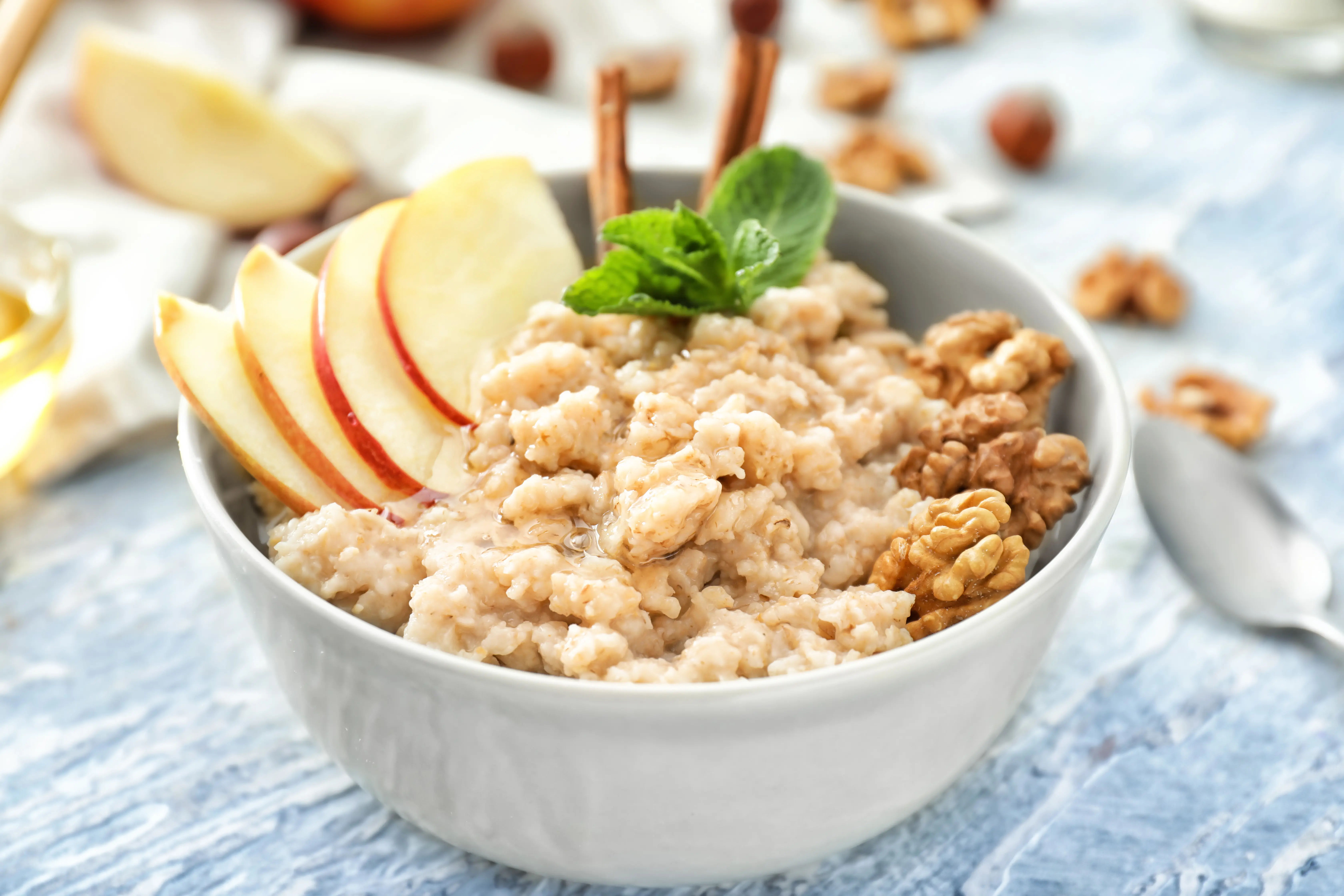How To Reduce Stomach Fat?
Discover effective ways to reduce stomach fat with diet, exercise, and lifestyle changes. Learn key strategies, debunk myths, and sustain long-term weight loss.

Written by Dr.Sonia Bhatt
Last updated on 13th Jan, 2026

Introduction
Excess fat around your stomach affects not only your appearance but also your overall health. Abdominal fat, particularly visceral fat, is linked to an increased risk of metabolic disorders, heart disease, and diabetes. Unlike fat stored in other areas, visceral fat surrounds internal organs, potentially interfering with their function and disrupting hormonal balance.
Stomach fat consists of two types—subcutaneous fat, which sits just beneath the skin, and visceral fat, which accumulates around vital organs. While some fat is necessary for essential bodily functions, an excess can trigger inflammation and contribute to serious health conditions, including insulin resistance and cardiovascular disease.
Several factors contribute to fat accumulation in the abdominal area, including poor diet, lack of physical activity, hormonal changes, genetic predisposition, stress, and inadequate sleep. Unhealthy eating habits combined with a sedentary lifestyle often lead to excess calorie storage in the midsection. By identifying these factors, you can take proactive steps to reduce stomach fat and improve your overall well-being.
Dietary Changes to Reduce Stomach Fat
What you eat plays a crucial role in managing stomach fat. Making the right dietary changes can help you burn fat more effectively, improve digestion, and support overall health.
1. Importance of a Balanced Diet
A well-balanced diet ensures that your body gets essential nutrients while preventing excess fat accumulation. If you focus on whole foods, healthy fats, lean proteins, and complex carbohydrates, you can maintain a steady metabolism and avoid unnecessary weight gain. Portion control and mindful eating are also key to preventing overeating.
2. Role of Fibre and Protein in Reducing Stomach Fat
Fibre improves digestion and keeps you full for longer, preventing overeating. High-protein foods help maintain muscle mass and boost metabolism, encouraging fat loss. Including fibre-rich foods like vegetables, fruits, and whole grains, along with protein sources such as lean meats, eggs, and legumes, can support fat reduction.
3. Foods to Avoid for a Flatter Stomach
Certain foods contribute to fat accumulation and bloating, making it harder to achieve a flat stomach. Avoid:
Sugary drinks, processed snacks, and refined carbohydrates
Trans fats and deep-fried foods
Excessive alcohol, which promotes fat storage in the abdomen
By focusing on a nutrient-dense diet, you can effectively reduce stomach fat and improve overall health.
Effective Exercises for Burning Stomach Fat
Exercise is a key component in reducing stomach fat. A combination of cardiovascular workouts, strength training, and core-focused exercises helps burn fat, tone muscles, and improve overall fitness.
1. Understanding the Role of Cardio Exercises
Cardio workouts increase your heart rate and help burn calories, making them effective for fat loss. Activities such as running, cycling, swimming, and brisk walking can reduce overall body fat, including fat stored in the stomach. Regular cardio sessions improve metabolism, allowing your body to burn fat more efficiently.
2. Benefits of Strength Training for Stomach Fat Reduction
Strength training helps build muscle, which increases calorie burning even at rest. Exercises such as squats, deadlifts, and resistance training improve body composition and prevent fat accumulation. The more muscle you have, the easier it is to maintain a lean physique.
3. Specific Exercises Targeting Abdominal Fat
Although spot reduction is a myth, strengthening your core can improve muscle tone and support fat loss. Effective exercises include:
Planks and side planks for core stability
Bicycle crunches to engage obliques
Russian twists to strengthen abdominal muscles
Leg raises and mountain climbers for full-core activation
Lifestyle Modifications
Making the right lifestyle changes is just as important as diet and exercise if you want to reduce stomach fat effectively. Managing sleep, stress, and motivation levels can help you stay on track and achieve long-term results.
1. Importance of Adequate Sleep in Weight Management
Getting enough sleep is essential for weight loss. If you do not sleep at least seven hours per night, your body produces more cortisol, a stress hormone that encourages fat storage in your stomach. Poor sleep also increases hunger hormones, making you crave unhealthy foods. Prioritising a consistent sleep schedule can help you control appetite and improve metabolism.
2. Stress Management Techniques
If you experience chronic stress, it can lead to higher cortisol levels, which cause stubborn fat to accumulate around your abdomen. Practising relaxation techniques such as deep breathing, meditation, and yoga can help lower stress and prevent emotional eating. Staying active, taking breaks, and engaging in hobbies can also keep stress levels in check.
3. Tips to Stay Motivated in Your Weight Loss Journey
Staying consistent with your routine is key to reducing stomach fat. Set realistic goals, track your progress through photos and measurements, and celebrate small achievements along the way. If you find it difficult to stay motivated, consider joining a fitness group, using health apps, or finding a workout partner. Surrounding yourself with positive influences will help you stay committed and enjoy the journey.
Medical and Clinical Interventions
If you struggle to lose stomach fat despite maintaining a healthy diet and active lifestyle, medical interventions may be an option. These treatments are typically recommended for individuals with obesity or weight-related health risks.
Overview of Medical Treatments for Obesity
Certain prescription medications can support your weight loss by reducing your appetite, blocking fat absorption, or improving your metabolism. Your doctor may suggest medication such as orlistat, liraglutide, or phentermine-topiramate. However, these medications work best when combined with long-term lifestyle changes.
When to Consider Surgical Options
If you have severe obesity and lifestyle changes have not worked, your doctor may recommend surgical interventions. Procedures such as gastric bypass, sleeve gastrectomy, and liposuction can help reduce fat accumulation and improve metabolic health. However, surgery is only considered when other weight-loss methods have been unsuccessful, and it requires a lifelong commitment to healthy habits for lasting results.
Common Myths and Misconceptions
When trying to lose stomach fat, you may come across misleading information that can slow down your progress. Understanding the truth about fat loss can help you focus on effective strategies and set realistic expectations.
Debunking Popular Myths About Burning Stomach Fat
One of the most common myths is that you can target stomach fat with exercises like crunches or sit-ups. In reality, spot reduction is not possible. Fat loss happens across your entire body when you create a calorie deficit through diet and exercise. Another misconception is that certain foods or drinks, such as detox teas or fat-burning supplements, can instantly melt belly fat. These claims are not backed by science.
Understanding Realistic Expectations
Losing stomach fat takes time and consistency. If you expect overnight results, you may feel discouraged. Sustainable fat loss happens gradually through a combination of a balanced diet, regular exercise, and healthy lifestyle choices. Instead of quick fixes, focus on long-term habits that promote overall fat reduction and better health.
Monitoring and Sustaining Weight Loss
Losing stomach fat is just the first step. Maintaining your results requires consistent effort. Tracking your progress and making necessary adjustments can help you stay on the right path and prevent weight regain.
Tracking Progress and Adjusting Strategies
If you want to monitor your progress effectively, measuring your waist circumference, taking progress photos, and tracking body composition changes can provide valuable insights. Instead of relying solely on the scale, focus on overall fitness improvements. If you notice a plateau, adjusting your diet, increasing workout intensity, or trying new exercises can help keep your progress steady.
Keeping the Weight Off Long-Term
Maintaining weight loss requires sustainable lifestyle habits. If you stick to a balanced diet, stay active, and prioritise sleep and stress management, you can prevent regaining stomach fat. Avoid restrictive dieting, as it often leads to short-term results. Instead, focus on a long-term approach with healthy eating, regular exercise, and mindful habits that fit into your daily routine.
Conclusion
Reducing stomach fat requires a combination of healthy eating, regular exercise, and sustainable lifestyle changes. A balanced diet rich in protein, fibre, and healthy fats helps prevent fat accumulation, while cardio and strength training support fat loss and muscle definition. Managing stress, getting quality sleep, and staying hydrated also play key roles in maintaining a leaner midsection.
Staying consistent is essential for long-term success. Set realistic goals, track your progress, and make adjustments as needed. Instead of searching for quick fixes, focus on sustainable habits that improve your overall well-being. With patience and dedication, you can achieve and maintain a healthier stomach and body.
Consult Top Bariatrician
Consult Top Bariatrician

Dr. Anand Ravi
General Physician
2 Years • MBBS
Bengaluru
PRESTIGE SHANTHINIKETAN - SOCIETY CLINIC, Bengaluru

Dr. Sunil Kaul
General Surgeon
30 Years • MBBS, MS, FICS, FIMSA, FMAS
Delhi
Apollo Hospitals Indraprastha, Delhi
(25+ Patients)

Dr. Sreedhara V.
Surgical Gastroenterologist
23 Years • MBBS, DNB, FSGE
Bengaluru
Apollo Hospitals Bannerghatta Road, Bengaluru

Dr. Neha Shah
Bariatrician
23 Years • MBBS, MS, FIAGES, FAIS, FMAS, FMIS, FALS
Chennai
The Good Weight, Chennai

Prof Dr Pawanindra Lal
Minimal Access/Surgical Gastroenterology
31 Years • MS, DNB, FCLS, FRCS(Ed,Glasg,Eng,Irel), FACS, FAMS, FFSTEd
Delhi
Apollo Hospitals Indraprastha, Delhi
(100+ Patients)
.webp)



